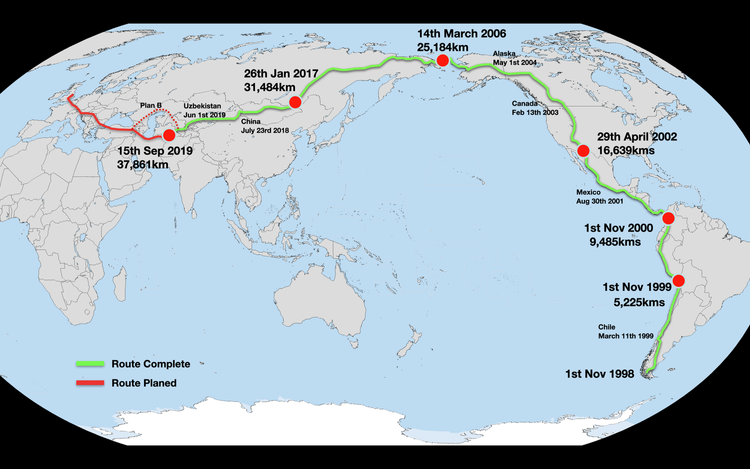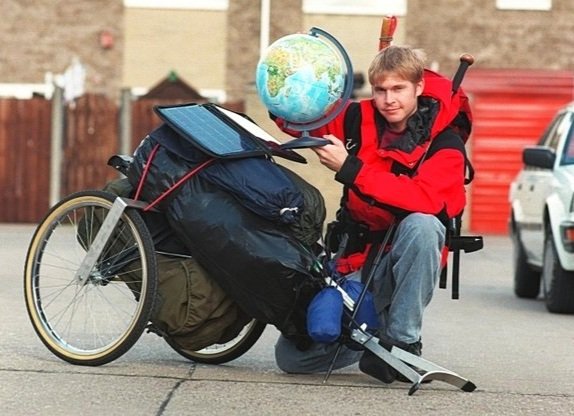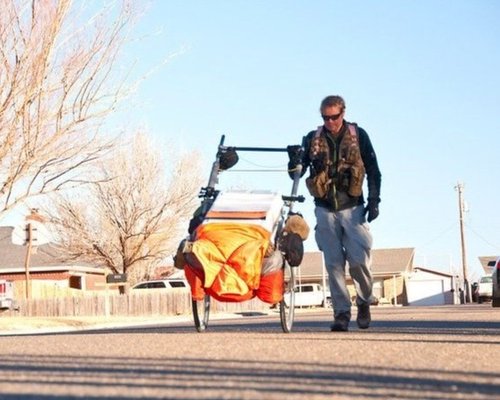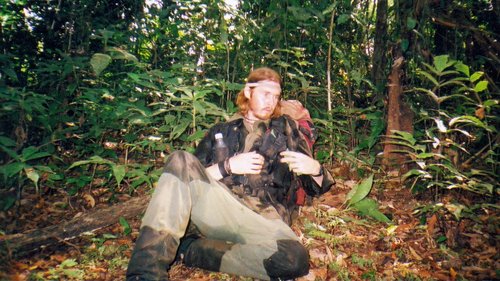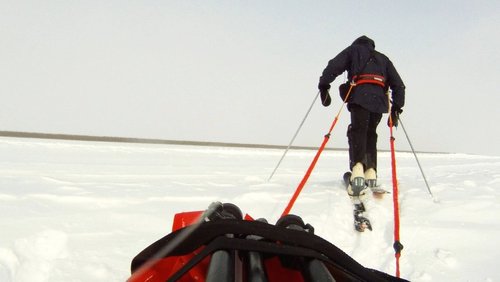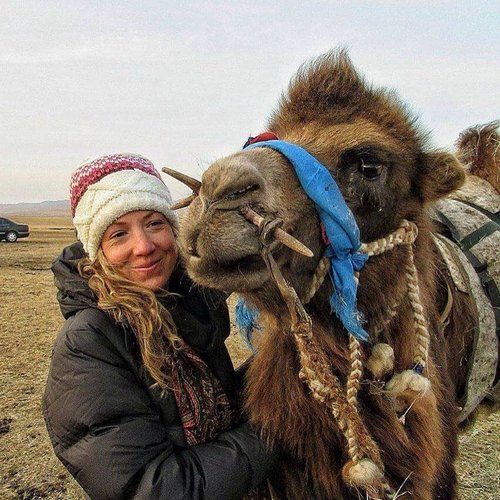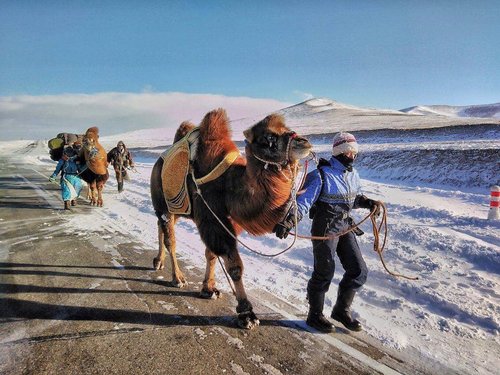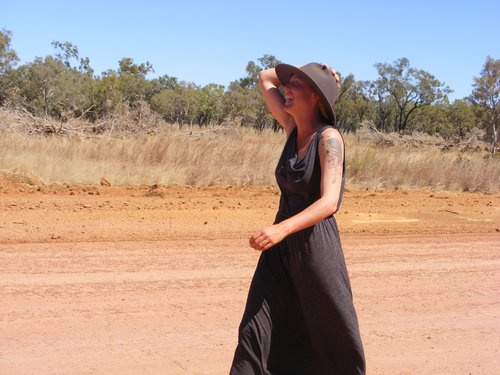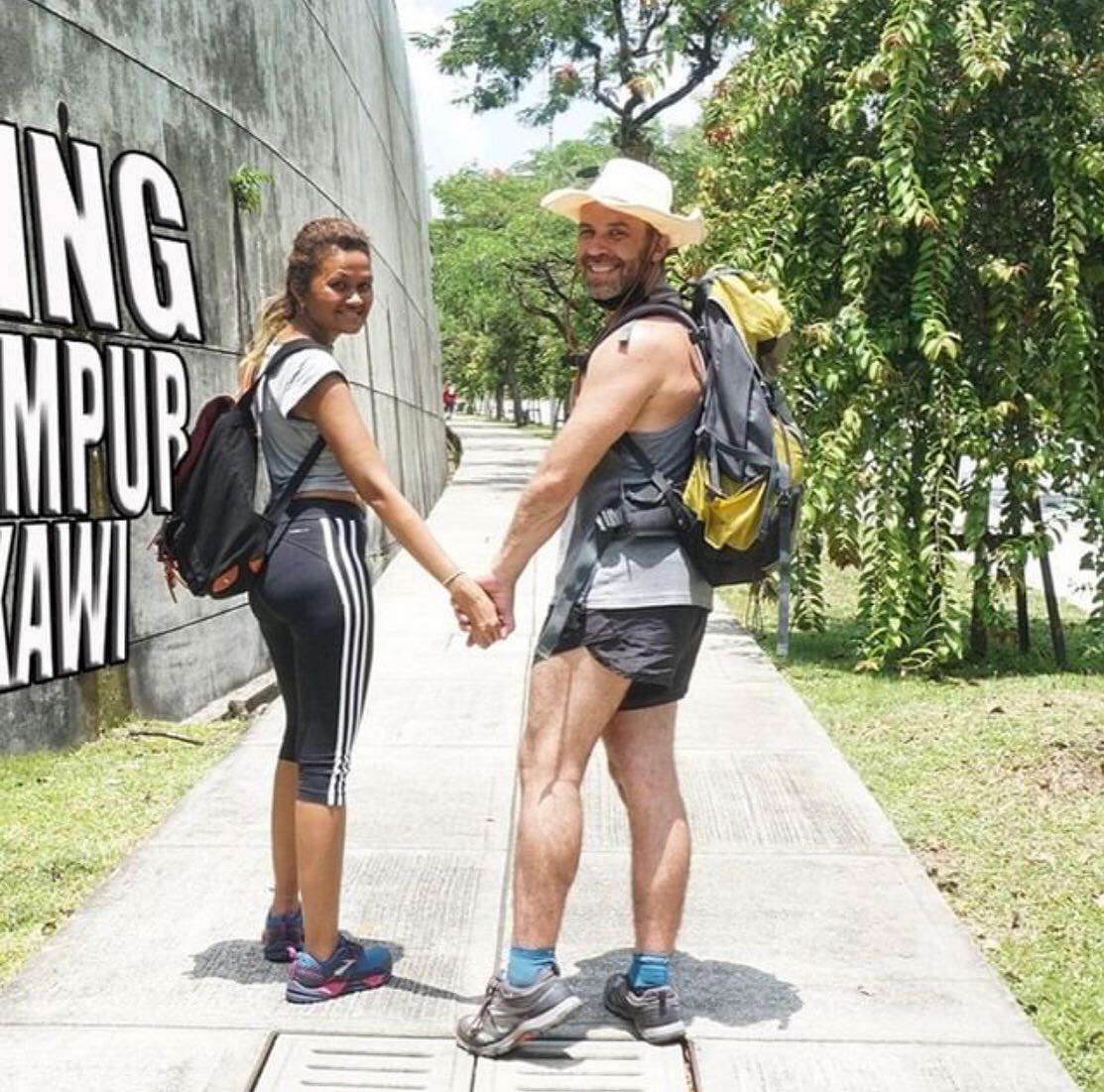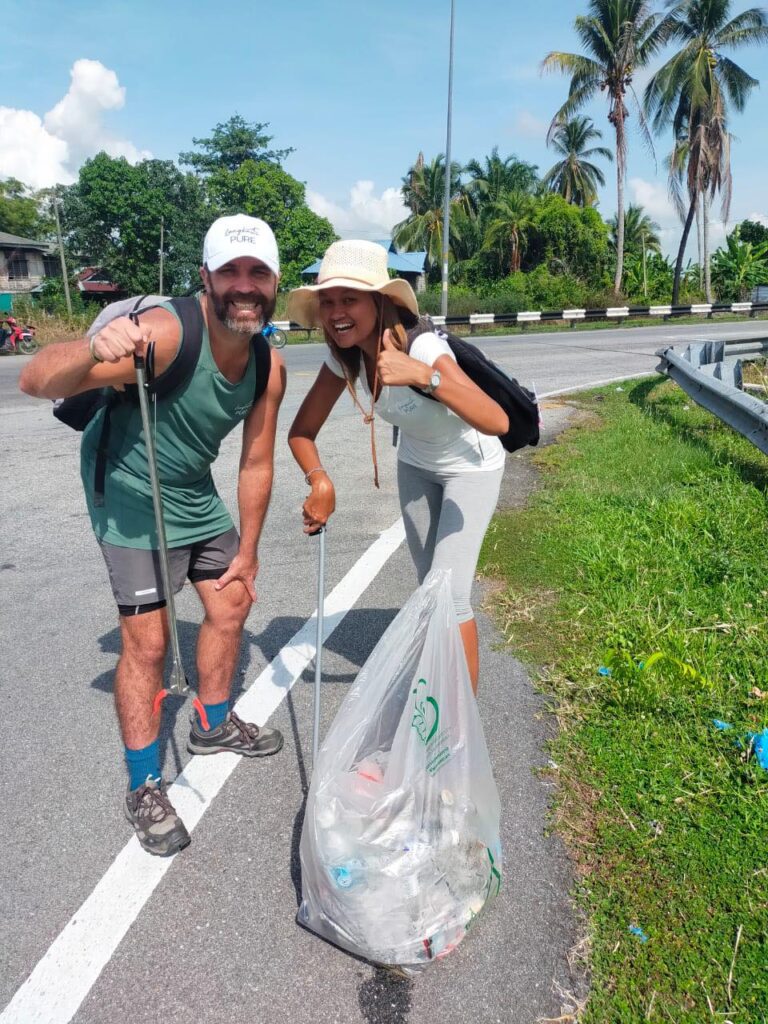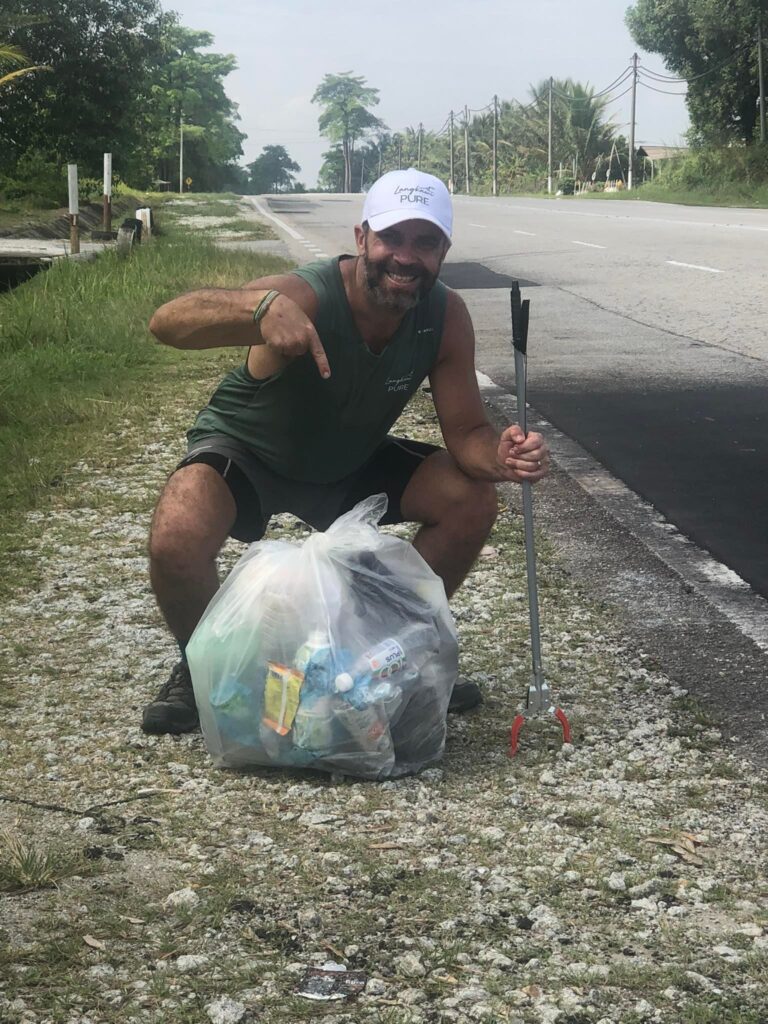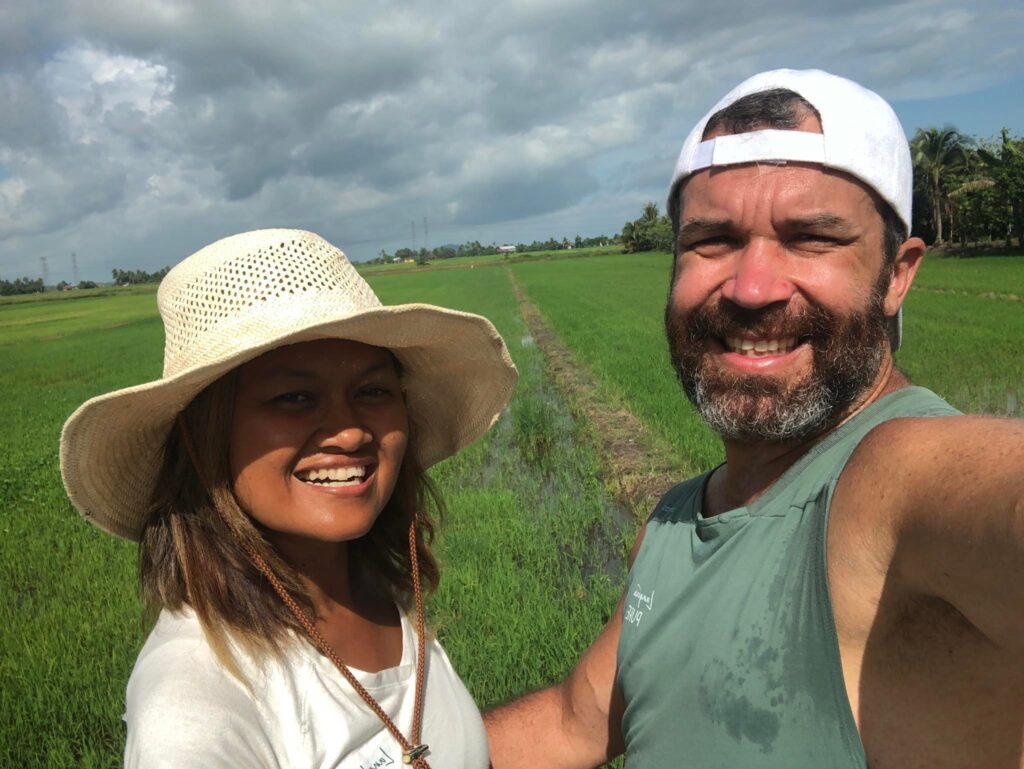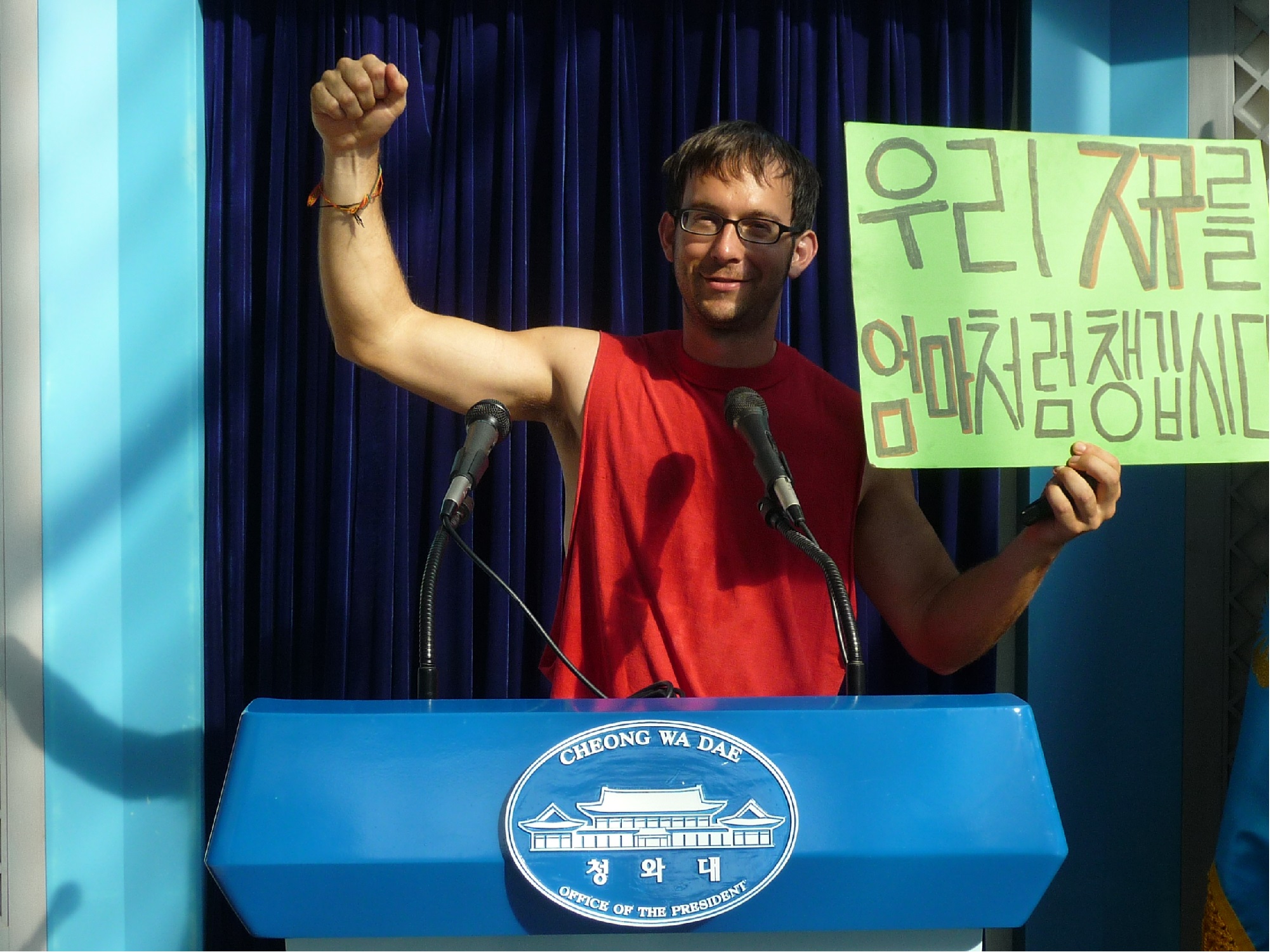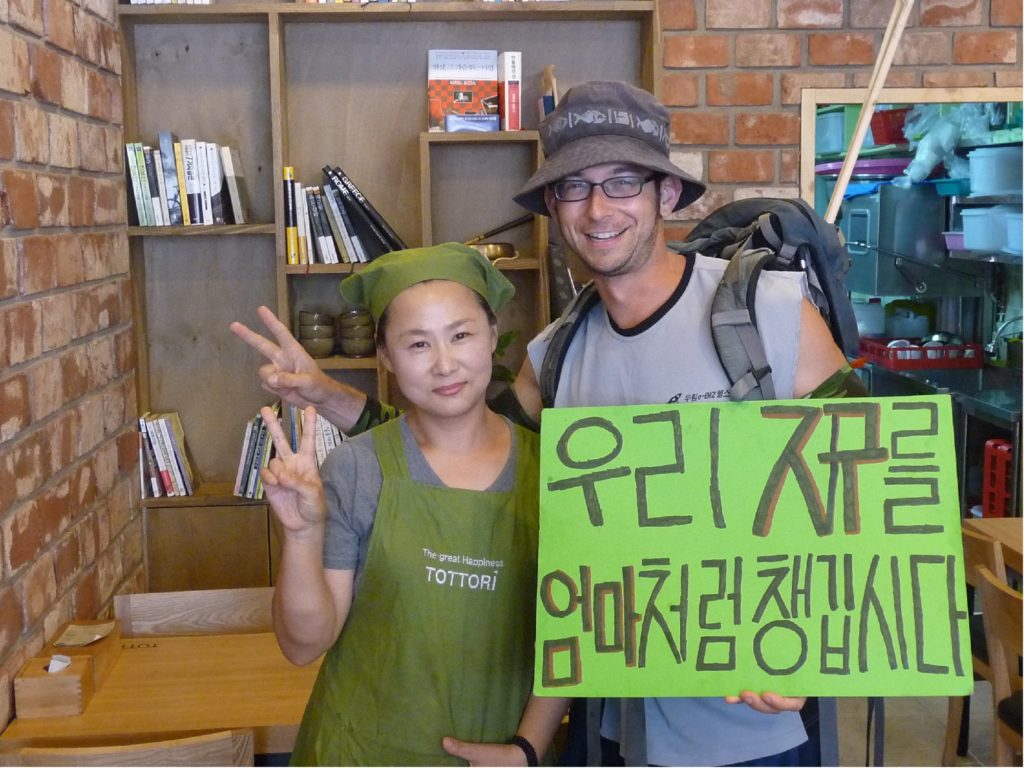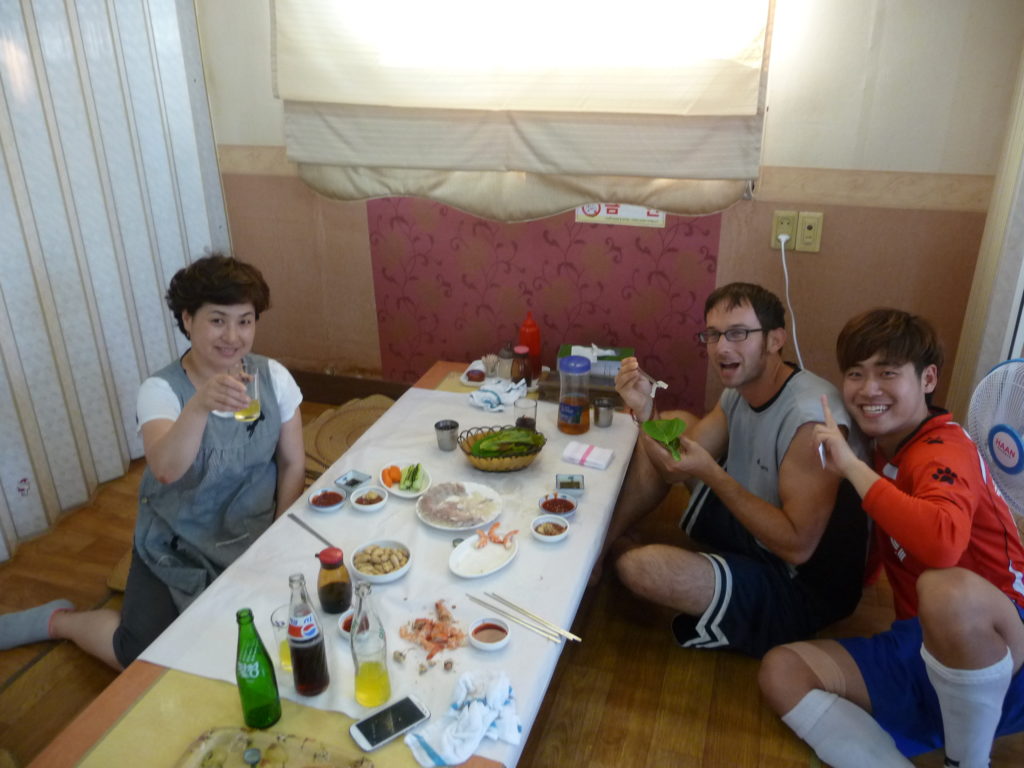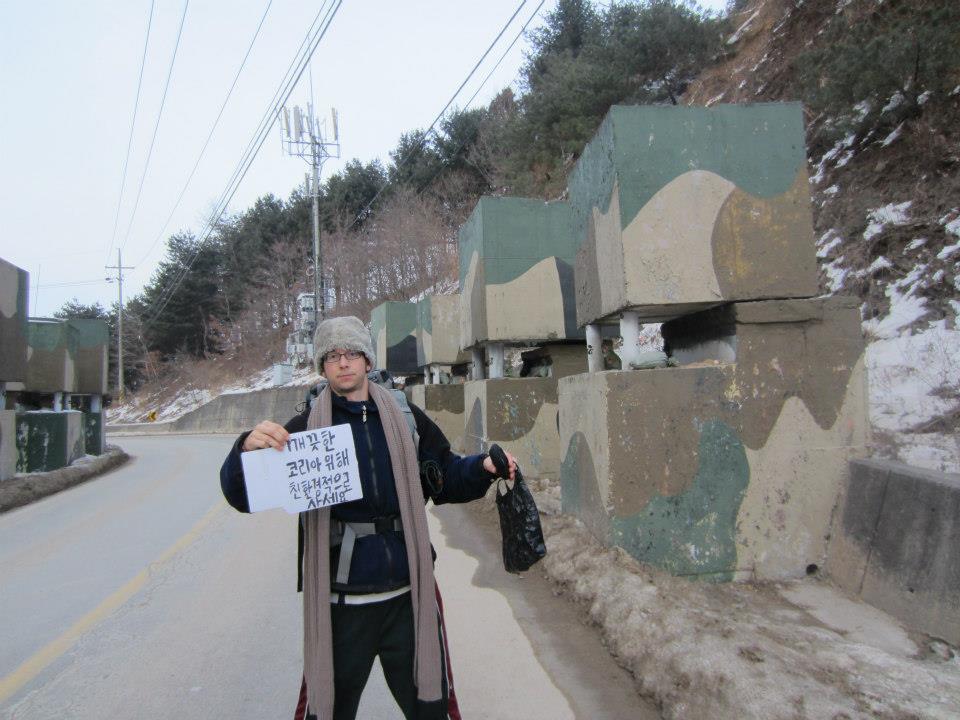I was so thrilled to hit the road and deliver my message. I spent two to three hours per day after work studying Korean and practiced all the scientific words until my head felt like it was about to split open and my throat was hoarse and sandpaper-dry. All my travel education motivated me to finally do something. The lion inside of me needed to come out. Everything I had worked for to this day came to a pinnacle. I was standing up for what I believe in while doing a good deed for society. It was my turn to pay back our Mother Earth and spread a message of peace to the local people while doing it. Walking and talking were the main goals of this trip and I was more psyched up than a kid who drank ten cans of Red Bull right before final exams.
How would people respond? Being from the other side of the world, people could tell me to go home and deliver my message within the borders of my own country. I had to make people understand that we have to reach beyond the limits of artificial lines drawn on maps and come together to solve the greatest problem of our times. It felt like an Olympic sprinter mistook my heart for a treadmill and was about to bring home a world record. Stomp. Stomp. Stomp. It will all be okay. This is your destiny. Now is the time and if you don’t do this you will regret it forever.
My friend Jared and I stepped out into the heat and grabbed our signs with our sweat-caked fingers. I held up my my cardboard poster high in the air with one hand and pointed at it with the other while yelling “jin hwang geong jeok in selg hwal hap shee da.” (Let’s live in an environmentally friendly way). Cars honked. Children rolled down their windows flashing their dimples and smooth-skinned cheeks. A wrinkle-faced grandfather showed us his gap-toothed smile while giving us a thumbs-up sign. A cute woman with way too much red lipstick yelled “fighting” (An English word used in the Korean language meaning “you can do it”). Nervousness vanished and only excitement intoxicated my brain and left me giddy.
Overall, reactions were great and people supported our mission. In restaurants along the way, many locals paid for our dinner and gave us offers of help whenever we needed it. We slept on the beach listening to the sounds of waves crashing along the South Sea and crept into dreamland while inhaling the salty humid air.
It was Liberation Day. On August 15th Korea celebrates its independence from the decades-long Japanese occupation. My friend and I needed liberation from the dehydration, the rank stench emitting from our pores, and penny-sized blisters on our toes. We approached a fishing village as the sea breeze cooled us off from the sweltering climate. In the distance, a loud muffled voice filled the airwaves. “There has to be something big going on there. Let’s check it out,” Jared and I said while picking up our pace. The sounds of a festival lurked ahead of us and fed us with the zest needed to carry on.
A few minutes later, we literally and figuratively stumbled upon a soccer game in a small village in the Masan area. The MC’s voice echoed through the air, detailing every pass, fancy dribbling maneuver, and shot on goal. The crowd screamed in suspense as one player fired a ball that ricocheted off the top goal post and slammed into an empty seat in the bleachers. After spending so many days walking through sporadically populated rice fields and beach towns, this was the most people in one place we had witnessed in a few days. There were way too many people in attendance compared to our rural surroundings. Perhaps the soccer game was the only major event happening within a one hundred football field radius What a perfect opportunity to spread my message. I need that microphone. I crept up to the announcer and flashed my sign at him during a timeout.
“Ney. Sam boon man duel eel key yo.” (Okay. I will give you ten minutes.)
Here was my big chance to grab the mic in front of a big crowd of soccer fans. My heart pounded and I jumped up and down to get myself psyched up to project my words clearly throughout the stadium. This trip took on a new meaning now and I had a chance to connect with one hundred people at the same time. For the past few days, we struck up conversations with groups of two or three people, but this was a whole different animal. One with sharp teeth and claws making me knees shake in its presence.
Come on now. You are a professor. Your job is to share your knowledge and experiences with the world. This is what you were born to do. It shouldn’t matter what language your words are in. You have been pounding vocabulary and grammar rules into your head for the past several years. Step up to the microphone and tell everyone what they need to hear. Their lives will be better for it. Your life will be better for it. You will never forget this moment.
My nerves faded away and I turned to the crowd and began to speak. My words came out clearly in rapid fire Korean. I spit out statistic after statistic and told onlookers the story of our walking journey, while Jared roamed the field below flashing his sign everywhere. Fragmented Korean sentences, pronunciation blunders, filler words and awkward pauses. It didn’t matter anymore. My mind became clear and ears rang as my words echoed through the liquid-soaked summer air. Before I knew it, the crowd began to applaud and the master of ceremonies signaled for me to finish up.
No applause. Little reaction. I stepped down from the stage and walked through the outskirts of the stadium as no one paid me any mind. Well then, it looks like my effort did not get through to the crowd. At least I gave myself a new comfort zone challenge and took action in the face of fear, nervousness and mental tension. A few steps later, watermelon armed wrinkled women waved me over to cool off in the shade and began shoving the fruit into my face. The normal interrogation began- age, workplace, marital status, hometown. I was more than accustomed to the questions. A look of astonishment filled one of the woman’s eyes.
“There is a kid here who attends that school. Where is Minseok?” she asked the crowd.
A tan kid wearing knee-high white socks and a bright red soccer jersey dashed in my direction, pushing people out of his path as if he were an ambulance worker coming to help a heart attack victim. The boy grabbed my hand with so much vigor that it nearly crushed my wrist.
“I am friend Hyeonook. He taking your class. My name Minseok.I calling Hyeonook now.”
A few seconds later Hyeonook got on the line and we were face chatting it up. Hyeonook’s face lit up with laughter-produced redness as his friend passed me the phone.
“Wow! Georgie! Minseok my best friend. You walking there is so fantastic. You having fun Minseok. I miss you Georgie!”
My former student was in utter disbelief that I was way out there in the village where his friend grew up. What are the chances a guy like me would have such an encounter a five hour bus ride outside of Seoul?
Minseok invited Jared and I to his parents’ fish restaurant, which was originally closed for business during the holiday. We plopped our sweaty bodies at one of the ankle-high tables and threw down our bags on the floor. Finally, a middle aged man flipped on the lights and ran into the kitchen. The man looked like a fifty year old version of Minseok. The same wavy hair, forehead structure, and disarming smile was a delight to encounter twice.
“What kind of food you liking? We have so much fish. You liking fish? My father make food.”
A few minutes later, Jared and I were surrounded by small white plates of freshly made food. There must have been at least fifteen dishes filled to the brim with fermented vegetables. Stained red cube-shaped cabbage, paper-thin seaweed soaked in a salty clear liquid, bright orange sliced tuna- tender, raw and succulent- ready to slither its way into the taster’s palate. True craftsmanship.
Minsoek and his family glared at the two guests with curiosity, intrigue, and pride as we stuffed our faces full of Korea’s best tasting restaurant food. Their pure innocence allured me. Everytime we took a bite we complimented the chef. “This is the best meal I have ever had in Korea.” Minseok and his father’s cheeks turned to a light red hue of embarrassment as we lavished on the praise. Korean humility. One often downplays or denies compliments and praise in South Korea in order to appear humble in the presence of others. Minseok and his father remained silent, smiled and continued to observe our enthusiastic chopstick shoveling. Their innocent look of satisfaction will forever be etched in my memories. This was true hospitality and we were the recipients. What a great feeling to stand up for what you believe in and be rewarded by a meal made with all the workings of a masterpiece. This heartwarming moment made all the worry and effort worth it.
